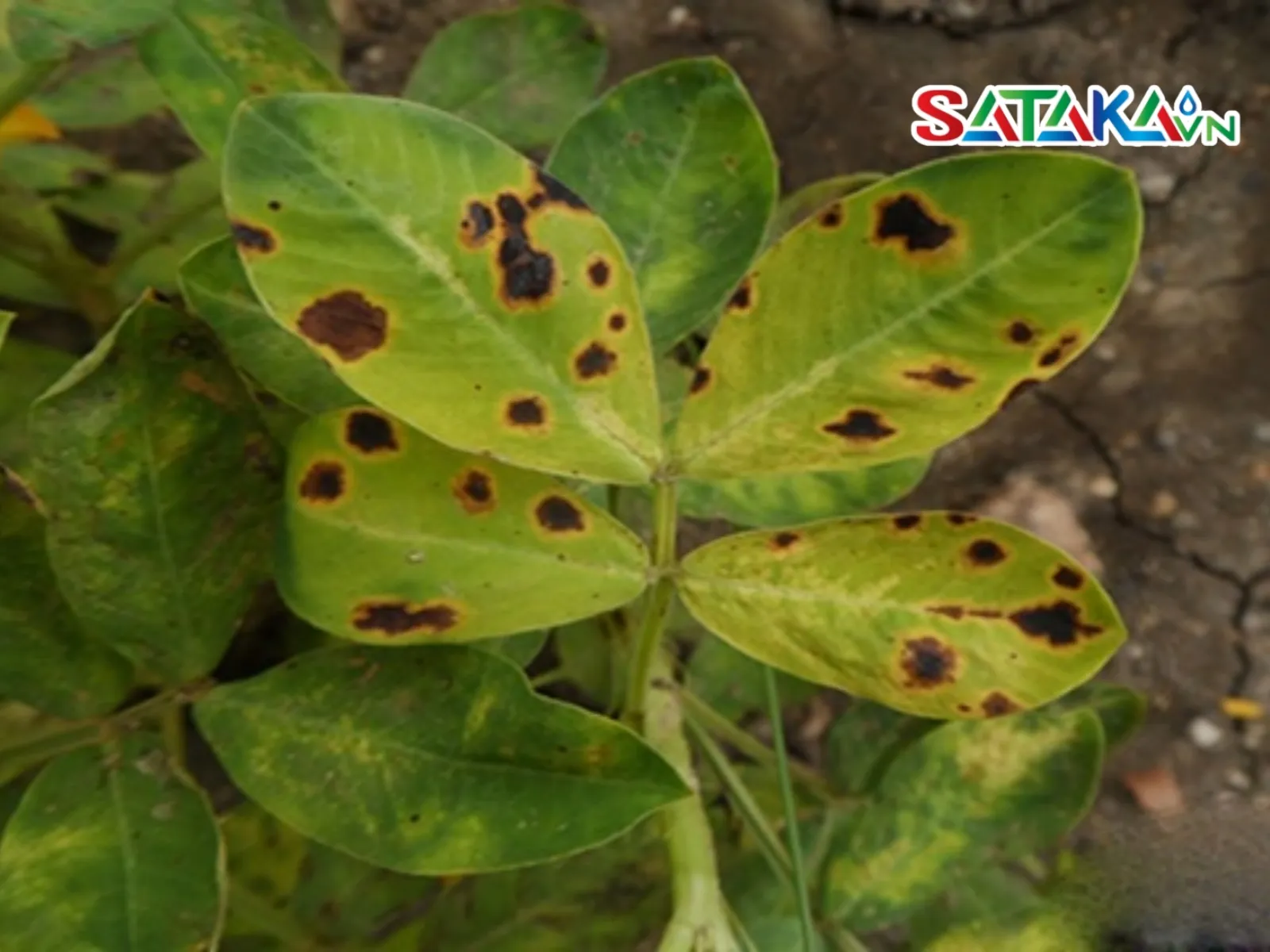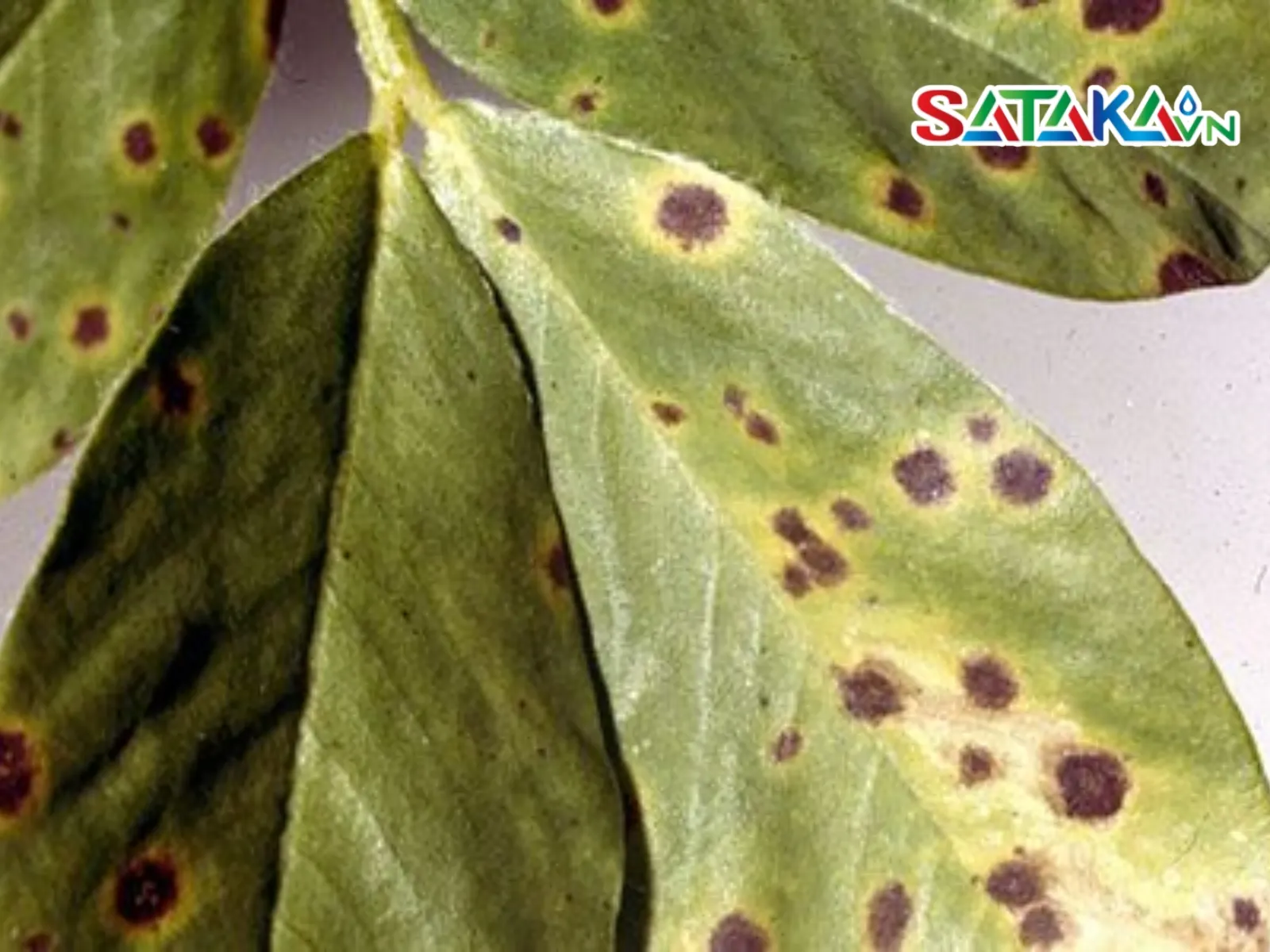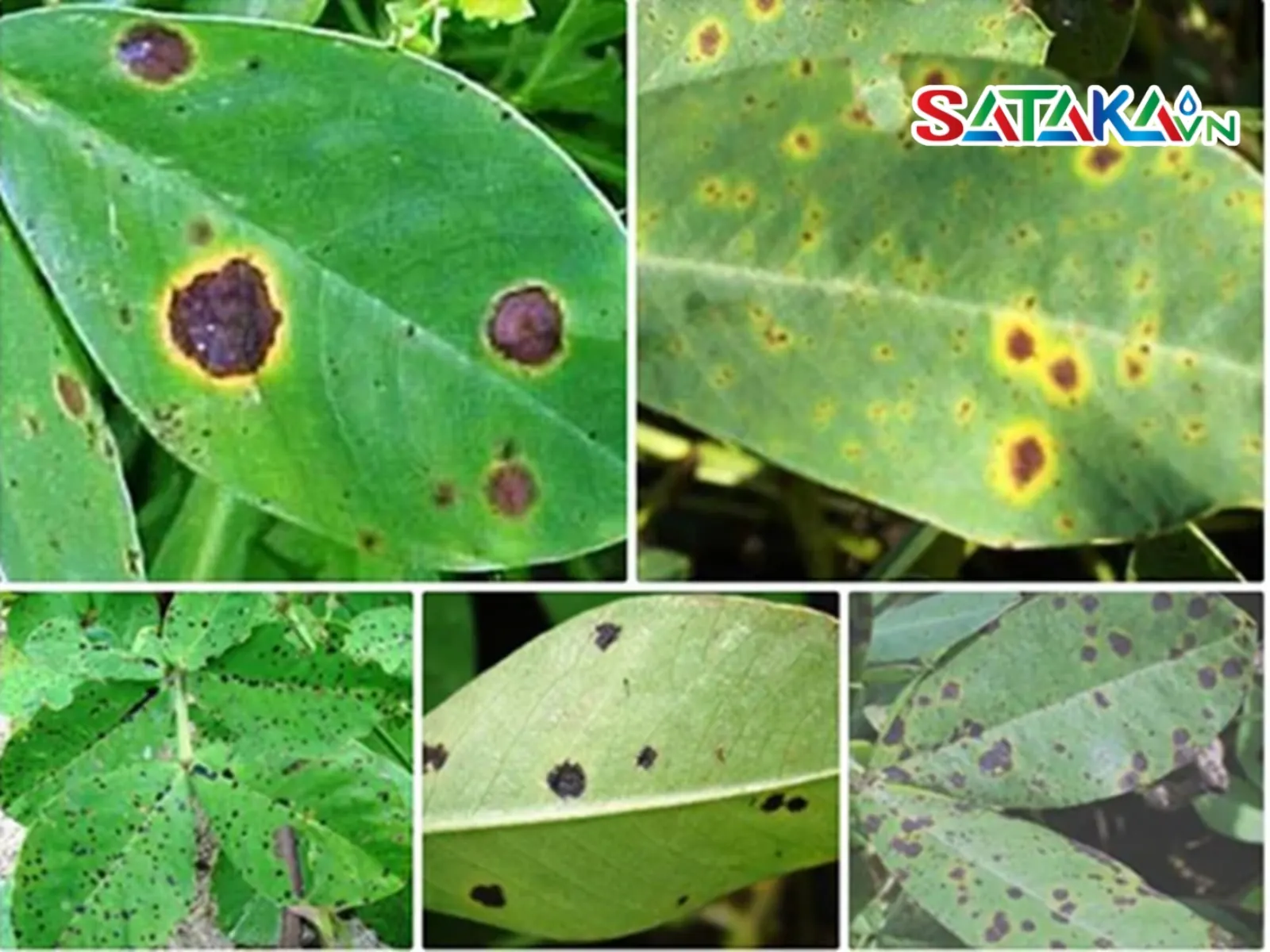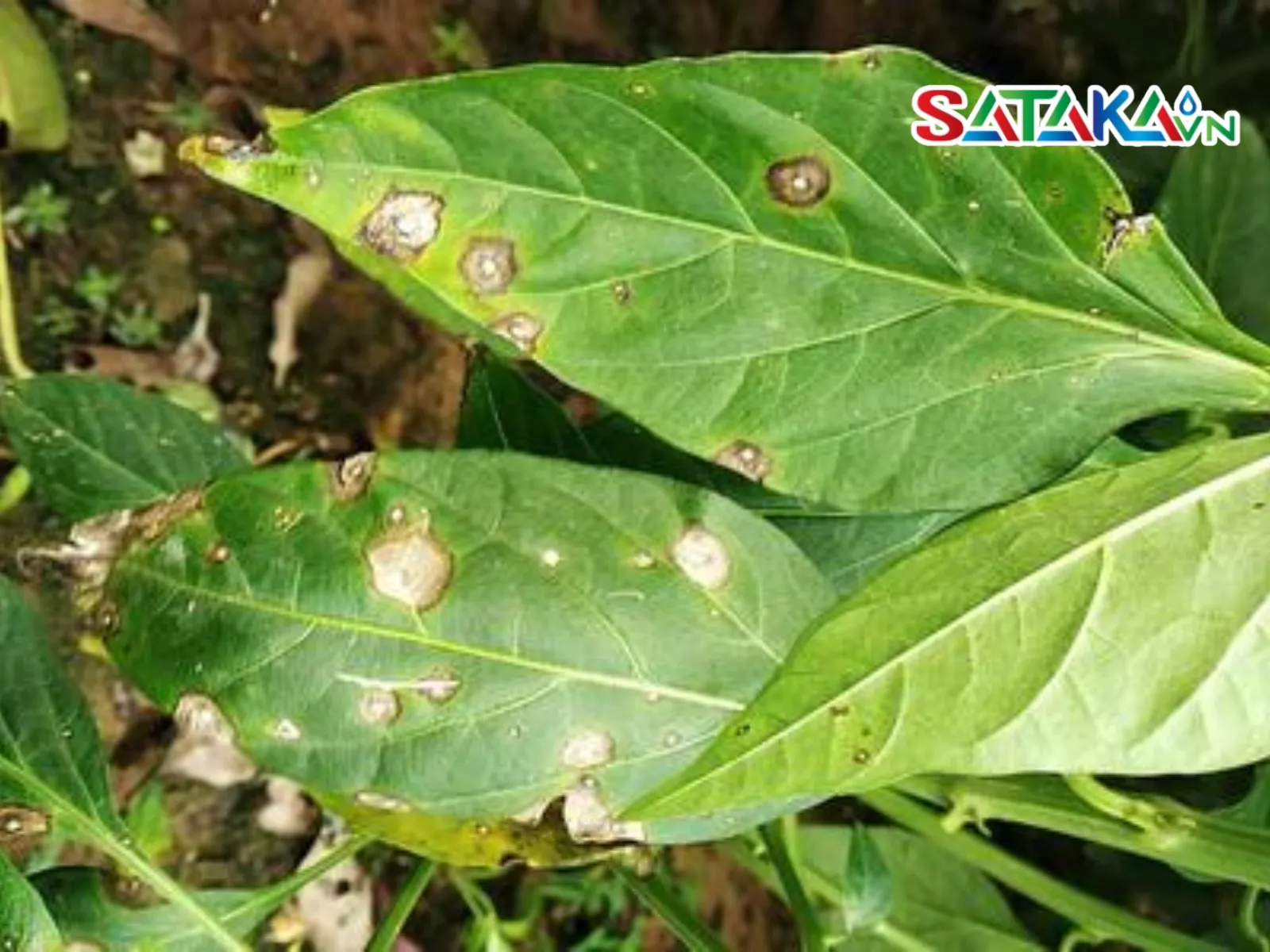Leaf spot disease on cashew trees is a serious problem, affecting productivity. Learn the causes, symptoms and effective prevention measures!
Leaf spot disease on cashew trees is a serious agricultural issue affecting the growth, productivity, and quality of the crop. In this article, Sataka will explore the causes of leaf spot disease on cashew trees and provide effective solutions for its control and prevention.
Leaf spot disease on cashew trees is one of the major concerns for farmers cultivating this crop. Caused by fungi, the disease typically appears on leaves, forming brown, black, or yellow spots. These spots can spread, leading to early leaf drop, which significantly impacts the yield and quality of cashew nuts.

Learn about leaf spot disease on cashew trees
When a cashew tree is infected, it not only reduces its photosynthetic ability but also weakens the tree, making it more susceptible to other diseases. Without timely prevention and treatment, leaf spot disease can cause significant losses to farmers in terms of yield and income.
Leaf spot disease on cashew trees can arise from various causes, primarily fungi and bacteria. These pathogens often attack the tree's leaves, causing unwanted spots. Environmental factors such as intense sunlight, heavy rainfall, and high humidity create favorable conditions for the disease to develop.
Weather changes, such as continuous rain, can keep the leaves wet, providing an ideal environment for fungal growth. Additionally, the physiological condition of the cashew tree plays a crucial role; weakened or stressed trees are more prone to disease. Farming techniques, such as planting density, canopy thickness, and irrigation methods, also influence the development of leaf spot disease.
The symptoms of leaf spot disease on cashew trees are clearly distinguishable between the early and advanced stages of the disease.
In the early stage, small spots appear on the leaves, ranging in color from light brown to dark brown. These spots usually begin at the leaf edges or on the underside, making them easy to confuse with other diseases. Farmers should pay attention to these initial symptoms, as they indicate that the cashew tree is under attack.

Symptoms of leaf spot disease on cashew trees
As the disease progresses, the symptoms become more severe. The spots expand, causing the leaves to turn yellow, dry out, and eventually fall off. Besides leaves, leaf spot disease can also affect branches and fruits, reducing the tree’s productivity. Early detection of these symptoms is crucial for timely intervention, protecting the crop, and ensuring economic efficiency.
To control leaf spot disease on cashew trees, apply effective farming practices such as selecting disease-resistant varieties, balanced fertilization, proper irrigation to control moisture, and cleaning the orchard by removing plant residues to prevent the spread of fungi and bacteria.
Biological methods involve using antagonistic fungi and beneficial microorganisms, such as Bacillus bacteria, to suppress pathogenic fungi and bacteria. This approach is not only effective but also environmentally friendly and protects the agricultural ecosystem.

How to prevent leaf spot disease on cashew trees
When cultural and biological measures are insufficient, farmers can use chemical plant protection products to control leaf spot disease. Spraying should be done early in the morning or late in the afternoon to maximize effectiveness and minimize evaporation or wash-off. Additionally, adhere to safe dosages and concentrations to protect the crop.
When treating leaf spot disease on cashew trees, farmers should consider the following important points:

Choose safe pesticides
Identifying and controlling leaf spot disease on cashew trees is crucial. By understanding its causes, symptoms, and applying the cultural, biological, and chemical measures outlined by Sataka, farmers can protect their trees, maintain their health, and improve harvest yields.